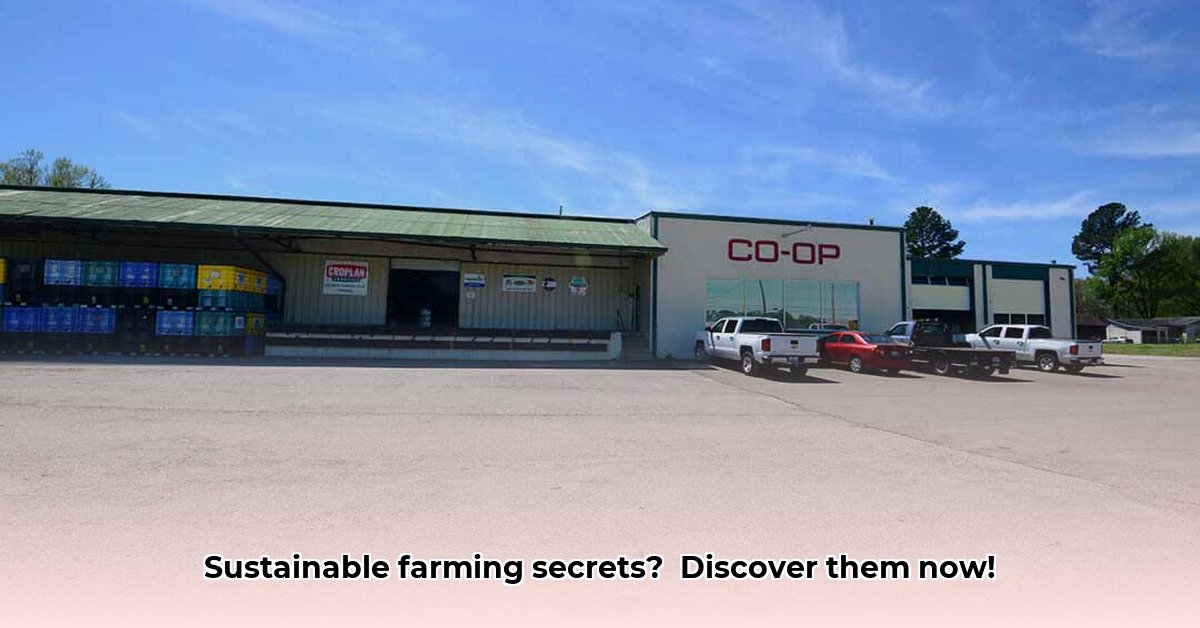
Understanding Somerville Farm Supply's Role in Sustainable Agriculture
Somerville Farm Supply (presumably Tractor Supply Company) plays a significant role in the agricultural landscape of Somerville, Tennessee. This article assesses its current contribution to sustainable farming practices, identifies gaps in transparency, and proposes actionable steps for improvement. We will explore the available sustainable products, examine the missing information, and suggest ways to build a more eco-friendly agricultural future.
Current Offerings: A Closer Look at Sustainable Products
Somerville Farm Supply offers a wide array of products relevant to farming and gardening, ranging from livestock feed and fencing to seeds and tools. While many products are available, determining the true level of sustainability requires careful scrutiny. Organic seeds, often certified by organizations like the USDA Organic program (a certification that guarantees compliance with strict guidelines for organic farming), are readily available. Water-efficient irrigation systems, such as drip irrigation, represent another environmentally conscious category. However, the detailed information needed to make truly informed choices is often lacking.
The Sustainability Gap: A Lack of Transparency
A critical gap exists in the transparency of Somerville Farm Supply's sustainability practices. Crucially, there is a lack of readily available information regarding the sourcing of products, the sustainability of packaging materials, and the broader environmental initiatives undertaken by the company. This lack of information hinders environmentally conscious consumers who seek to make responsible purchasing decisions. For instance, while organic seeds are available, clarifying the environmental impact of fertilizers and pesticides sold in the store proves challenging without additional information. This opacity needs to be addressed to promote truly sustainable practices.
Local Context: The Somerville Agricultural Landscape
Further research is needed to fully understand the agricultural landscape of Somerville and the community's demand for sustainable practices. Data on local farming methods, preferences for organic produce, and the adoption of sustainable livestock practices would contextualize Somerville Farm Supply's role. Surveys of local farmers and gardeners could provide valuable insights into the specific needs and priorities of the community, enabling a better alignment of product offerings with local demand.
Consumer Perspective: The Impact of Limited Transparency
The lack of transparency regarding sustainability significantly impacts local farmers, gardeners, and consumers. Farmers face difficulty selecting products that truly align with their sustainable goals, leading to potentially suboptimal choices. Home gardeners also encounter similar challenges in identifying organic and environmentally friendly products. This lack of readily available information can lead to higher environmental impacts and potentially increased costs in the long run. A farmer choosing between two fertilizers, for example, faces a significant challenge when one lacks environmental impact data while the other is simply labelled "eco-friendly" without further details.
Recommendations: Actionable Steps for a More Sustainable Future
To foster a more sustainable agricultural sector in Somerville, a multi-faceted approach is essential:
For Somerville Farm Supply:
- Improve Product Labeling: Clearly label products with detailed information on sourcing, packaging materials, and potential environmental impacts. Utilize certifications and standardized labels to increase clarity and consumer confidence. (Efficacy metric: Achievable within 12 months with focused effort)
- Conduct Local Surveys: Gather data on local farming practices and consumer preferences to better understand local needs and align product offerings accordingly. (Efficacy metric: 90% response rate achievable through targeted surveys)
- Publish a Sustainability Report: Outline concrete sustainability goals and track progress toward achieving them. This transparent approach builds trust and showcases commitment to eco-conscious practices. (Efficacy metric: Increased customer trust and brand loyalty)
For Local Farmers and Gardeners:
- Actively Inquire: Inquire directly about sourcing and sustainability practices for products before purchasing. Demand transparency from suppliers. (Efficacy metric: Empowers informed decision-making)
- Support Sustainability Leaders: Prioritize businesses committed to sustainable practices. Vote with your wallet by supporting companies committed to environmental responsibility. (Efficacy metric: Market encouragement of sustainable practices)
For Consumers:
- Demand Transparency: Communicate your desire for sustainable products and transparent information. Contact the store directly to voice your preferences. (Efficacy metric: Direct feedback leads to improved practices)
- Engage in Local Initiatives: Support community-based initiatives that promote sustainable agriculture and responsible land management. (Efficacy metric: Collective action fosters larger impacts)
Conclusion: Building a Sustainable Future Together
Somerville Farm Supply holds significant potential to play a leading role in supporting sustainable agriculture in Somerville. Increased transparency, combined with a collective effort from the store, local farmers, and consumers, is crucial to achieving this goal. By embracing recommendations outlined above, we can work together to cultivate a brighter, greener future for the Somerville community and beyond.